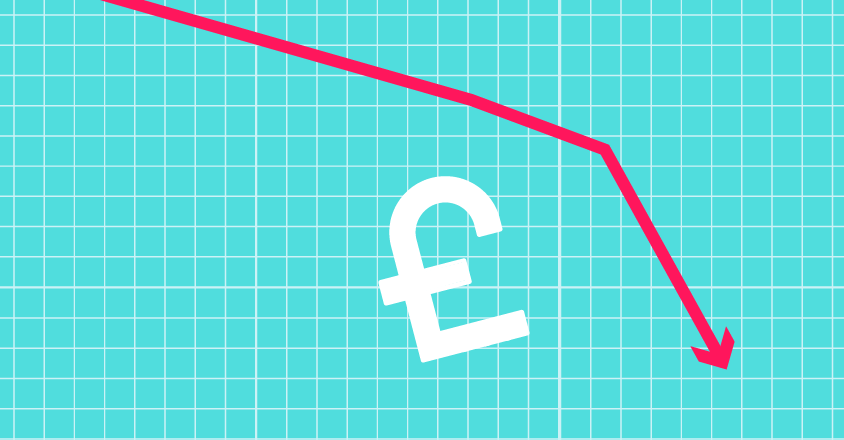Why writers are at a loss for words

Writers are the wealth generators of the UK economy: we love to watch their shows, read their books and be captivated by their words. Writing as a career too is one that many aspire to, but while it may be perceived to be well-paid, the latest in a series of authors’ earnings surveys funded by ALCS, shows a profession struggling to sustain itself.
“Writing in itself cannot sustain an income that is consistent with a minimum wage”
This latest research into authors’ earnings, conducted by the CREATe Centre at the University of Glasgow, tells an alarming story of a profession nearing a tipping point in terms of the future of writing as a profession. The past 15 years have seen a sustained fall in professional writers’ real terms income from writing; this decline of around 60% has pushed median earnings down to minimum wage levels.

“The de-valuing of creative labour.”
The report highlights a profession often reliant on writers’ willingness to work for modest rewards, incentivised primarily by their love of the job and reliant on financial support from other sources of income, with the median earnings from writing alone now down to just £7k per year.
The researchers observe that, “Such ‘intrinsic motivation’ may be linked to the devaluing of creative labour, and perhaps untenable market conditions.”
“There are serious questions over the future of writing as a profession.”
The research also reveals:
- A rapid decline in the number of full-time professional authors from 40% of those surveyed in 2006, to 28% in 2018, and now 19% as of 2022
- The gender gap is expanding – men are earning typically 41% more than women (vs 33% in 2016/17)
- Pay for Black and multi-heritage authors is 51% (in real terms) lower than for their white counterparts


“The profession of writing is characterised by winner-takes-all dynamics and extremely high levels of earnings inequality.”
The survey also showed that the top 10% of authors earn about 47% of the total income of the population.
Despite all these systemic flaws, the writing profession makes a vital contribution to the continued health of the UK’s creative industries which, with an estimated gross value added in excess of £100bn, remains a resilient part of the economy capable of delivering future growth.

“We see a sustained downward trend over the past two decades that seems to be associated with changes to creative labour markets in the digital environment.”
The report shows a shift in contractual arrangements and the way that business is done across both audio-visual and publishing, raising a specific query regarding writers’ returns from the booming streaming industry. It also tracks the sustained, long-term fall in writers’ earnings, against the fundamental changes in the way that their works are distributed, shared and consumed, changes which have enabled market entrants to garner significant profits.
“This report raises serious questions about the sustainability of the writing profession in the UK. Consistently, we find that earnings from writing are decreasing and creative labour is becoming de-valued. Whilst many of our respondents talked about their love of creating, and passion for writing, relying on their altruism has been used to justify an increasingly unliveable wage.”
Amy Thomas, lead researcher, CREATe
“The CREATe report and analysis reveals some deeply worrying trends for writers, working within an industry which has experienced seismic shifts over the last 15 years. Given the clear contribution writers make to the economy and society as a whole, their work should be properly valued and rewarded; for too many professional writers that simply isn’t the case at present. ALCS, alongside similar organisations representing our creative workforce, will continue to argue for working conditions built around core values such as fairness and inclusivity. The alternative, as the report suggests, leads to a diminished profession unable to sustain the vital contribution that writers make to society and our economy.”
Barbara Hayes, Chief Executive, ALCS
All quotes taken from ‘Authors’ Earnings and Contracts’ by CREATe (2022). The full report can be viewed here.
For further information on the report, please contact Richard Combes at richard.combes@alcs.co.uk
